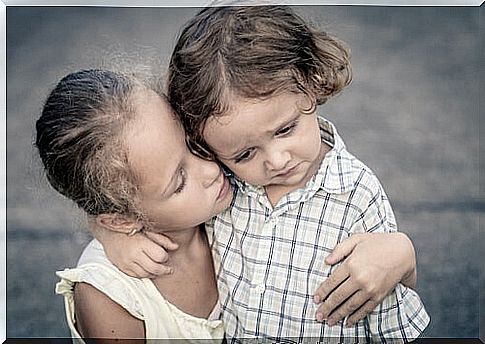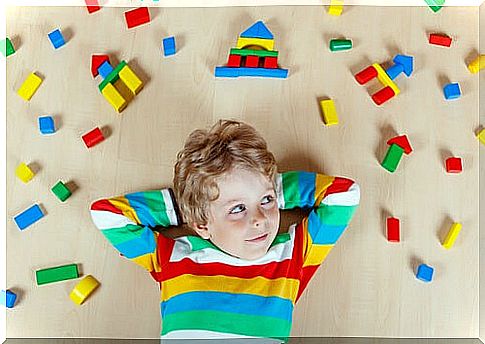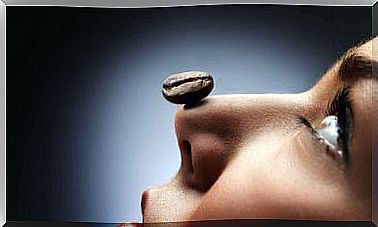Pressured Children, Perfect Children?

Why isn’t your grade a “10”? “At your age I was the best student in the class”, “You have to try even harder”, “Until you are perfect in math you don’t stop studying”, “No you can be wrong ”… Pressured children hear these types of phrases several times during their childhood and adolescence.
Of course, parents want the best for themselves and by urging them to improve they do not want their little ones to suffer. However, behind the pressure and expectations are hidden unresolved issues from adults in the past and it can also result in a self-conscious being who will probably repeat that attitude with his own offspring.
Children under pressure: when perfection falls short
After studying night and day for several weeks, Pedro finally achieved the 10 that his parents demanded so much of him. When he arrived home with the exam in hand and happy for what he had obtained, the older people looked at him and instead of congratulating him they said “we hope that now these are the only grades you bring from school.”

Inés is a girl whose parents forced her to start studying dance. Since she was little, she has worn her pointed shoes and her hair up, attends all classes and even stays after hours practicing in front of the mirror. At home he just listens over and over to the melody to be learned for the end-of-year presentation.
On the long-awaited day the whole family goes to see her at the theater. When the performance ends, the parents approach her and warn her: “You better be better than your classmates next time” even when the teacher chose her for the main character.
María and Ernesto’s children must attend piano and tennis classes because those were the dreams of each of them when they were little. Kids don’t like keys or rackets, but that doesn’t matter. They have to go because it is the wish of their elders and they do not accept to be upset. The desire of the couple is that their children be successful pianists and tennis players since they have not had the opportunity to be.
These situations may seem like something out of the imagination of a humble copywriter, but they are true. In many cases parents do not realize that by wanting their children to be perfect (or if there is something other than perfection, too) they are shaping them in a way that will be replicated throughout their lives.
Stimulate or pressure the children?
Of course, most parents do not try to harm their little ones, but due to ignorance or repeating attitudes from the past instead of helping, they create a future adult with many complexes, sadness and without the ability to accept their mistakes. And even with the great possibility of repeating that behavior in their own children.
Now, when are they stimulating and when pressing? The fine line between these two actions is based on attitude. To better understand it, Madeline Levine in the book “How Parents Create Pressure”, indicates that if adults connect with children and participate in their activities the process is called “stimulation”.
But on the contrary, if personal desires go above the well-being of the child or while it is demanded the adult is focused on another activity, such as work or housework, it is called “pressure”.

Is pressure something current?
A habit of the 21st century is that children from an early age have dozens of extracurricular tasks: English, sports, music, painting, scouts, dance, and the list goes on. On the one hand, this is due to the fact that parents work long hours a day and cannot take care of them and, on the other hand, because they consider that in this way they will “get the best of themselves”.
It is not bad that they exercise or that they know how to speak a second language. What may not be entirely correct is to “push” them to do something they do not like or to pressure them in such a way that if they are not perfect they are “bad children”, “ungrateful” or “they do not deserve anything”.
How to avoid looking for “perfect children”
Before trying to achieve ideal children, we should ask ourselves what we mean by “perfection”. Wouldn’t it be better for children to be happy doing what they like? Of course there is a difference between liberty and debauchery. We are not talking about accepting that they leave school or do not study a career.

Wishing great things for our children is something typical of all parents. However, what price must be paid to get them? Encourage your children to do their best beyond the results. Don’t put negative qualifying adjectives when they don’t get the best grade. Ask them how they feel about going to class or what they would like to do when they leave school.
In this way you will be raising future adults who can overcome the obstacles that are presented to them, who can reach their full potential without comparing themselves to the rest and, above all, who are happy with the future they have chosen.









